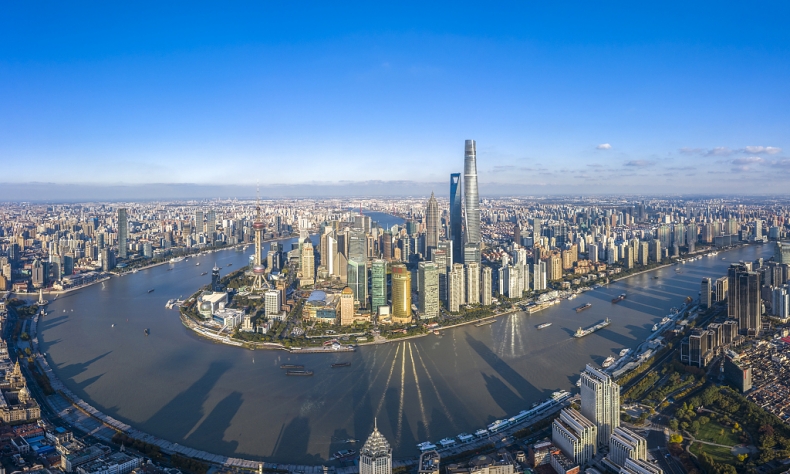Macro-Control Policies Needed for Economic Recovery

In the face of potential global inflation, China needs proper macro-control policies to create a friendly environment for overall economic recovery and development.
The massive global roll-out of COVID-19 vaccines promises to effectively rein in the pandemic around the world. However, the post-pandemic return to normalcy brings with it the possibility of inflation.
With the exception of China, 2020 saw all of the world’s major economies undergo negative growth and, as a result, all of them are formulating or implementing monetary stimulus measures to reboot their pandemic-ravaged economies.
In March 2020, the Donald Trump administration signed the Coronavirus Aid, Relief and Economic Security Act, known as the CARES Act, followed by a $900-billion COVID-19 relief bill in December of the same year. This March, the Biden administration’s $1.9-trillion coronavirus relief package was approved by the Congress. The trillions of dollars of stimulus packages over the past year now outweigh those released in the early stages of the 2008 financial crisis.
According to forecasts by Goldman Sachs, the next financial bill will include at least a $2-trillion stimulus package to fund the building of infrastructure.
Led by the United States, leaders of G7 nations have all announced intentions to restore confidence and economic growth at any cost. In April 2020, Japan revealed its 108.2-trillion-yen ($995 billion) emergency economic stimulus package. The Canadian Government unveiled in its fiscal report on November 30, 2020, that the government was planning to input 70-100 billion Canadian dollars ($56-80 billion) to boost its economy. It constitutes the largest economic relief package Canada has released since World War II. The British Government declared a 30-billion-pound ($41 billion) economic stimulus package on March 11, the largest of its kind since 1992. In the coming five years, the country’s public investment is expected to surpass 600 billion pound ($822 billion).
Currency, total demand and total supply are the three major factors leading to inflation. Major economies are almost all over-issuing currency and the United States is no exception. Given that for quite a while these countries’ economic growth will remain sluggish, it’s likely that they will practice a loose monetary policy for some time, which is a probable trigger for inflation.
COVID-19-induced lockdowns have restrained people’s consumption. When they are gradually lifted after the coronavirus is tamed, pent-up consumer spending is likely to quickly bounce back, especially in sectors like tourism, sports, property and education. However, if this is the case, supply may lag behind demand, as production in various industries is hit hard over the course of the pandemic. A number of small and medium-sized businesses have been snuffed out due to capital chain rupturing, withering production capacity or shrinking markets.
Business owners refraining from increasing investment will cause a lag in supply after COVID-19, and inflationary pressure caused by this kind of undersupply is already evident in industrial production.
Since December 2020, the prices of commodities like coal, iron and steel have been surging. Consumers have to pay extra for products. Meanwhile, as the production capacity is unable to go into full swing, the gap between supply and demand is widening, further pushing up inflation.
There is expectation that over-issued currencies will be diverted into the stock market, so as to lessen inflationary pressures on commodities. This is wishful thinking. Today, capital markets around the globe are hedging against risk by updating mechanisms to fend off sharp ups and downs in the stock market. In this context, it is impossible for the capital market to absorb currencies over-issued in the past year.
As this year’s government work report has proposed, China’s consumer price index growth for 2021 will be around 3 percent. Meanwhile, the growth rate of the producer price index keeps going up, evidence that inflationary pressures are coming from industry instead of the conventional food supply sector.
In the face of potential global inflation, China needs proper macro-control policies to create a friendly environment for overall economic recovery and development.
 Facebook
Facebook
 Twitter
Twitter
 Linkedin
Linkedin
 Google +
Google +










